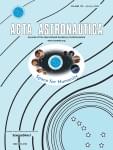Year 2023 face_with_colon_three
If humanity is ever to consider substantial, long-term colonization of Mars, the resources needed are going to be extensive. For a long-term human presence on Mars to be established, serious thought would need to be given to terraforming the planet. One major requirement for such terraforming is having the protection of a planetary magnetic field — which Mars currently does not have. The Earth’s magnetosphere helps protect the planet from the potential sterilizing effects of cosmic rays and also helps retain the atmosphere, which would otherwise by stripped by large solar storms as they pass over the planet. Mars does have small patches of remnant surface magnetic field, but these are localized in the southern hemisphere and are not of sufficient size or magnitude to protect the planet or a colony.
In this article we explore comprehensively for the first time, the practical and engineering challenges that affect the feasibility of creating an artificial magnetic field capable of encompassing Mars. This includes the concerns that define the design, where to locate the magnetic field generator and possible construction strategies. The rationale here is not to justify the need for a planetary magnetosphere but to put figures on the practicalities so as to be able to weigh the pros and cons of the different engineering approaches.
The optimum solution proposed is completely novel, although inspired by natural situations and fusion plasma techniques. The solution with the lowest power, assembly and mass is to create an artificial charged particle ring (similar in form to a ‘radiation belt’), around the planet possibly formed by ejecting matter from one of the moons of Mars (in a fashion similar to that which forms the Jupiter-Io plasma torus), but using electromagnetic and plasma waves to drive a net current in the ring(s) that results in an overall magnetic field.
